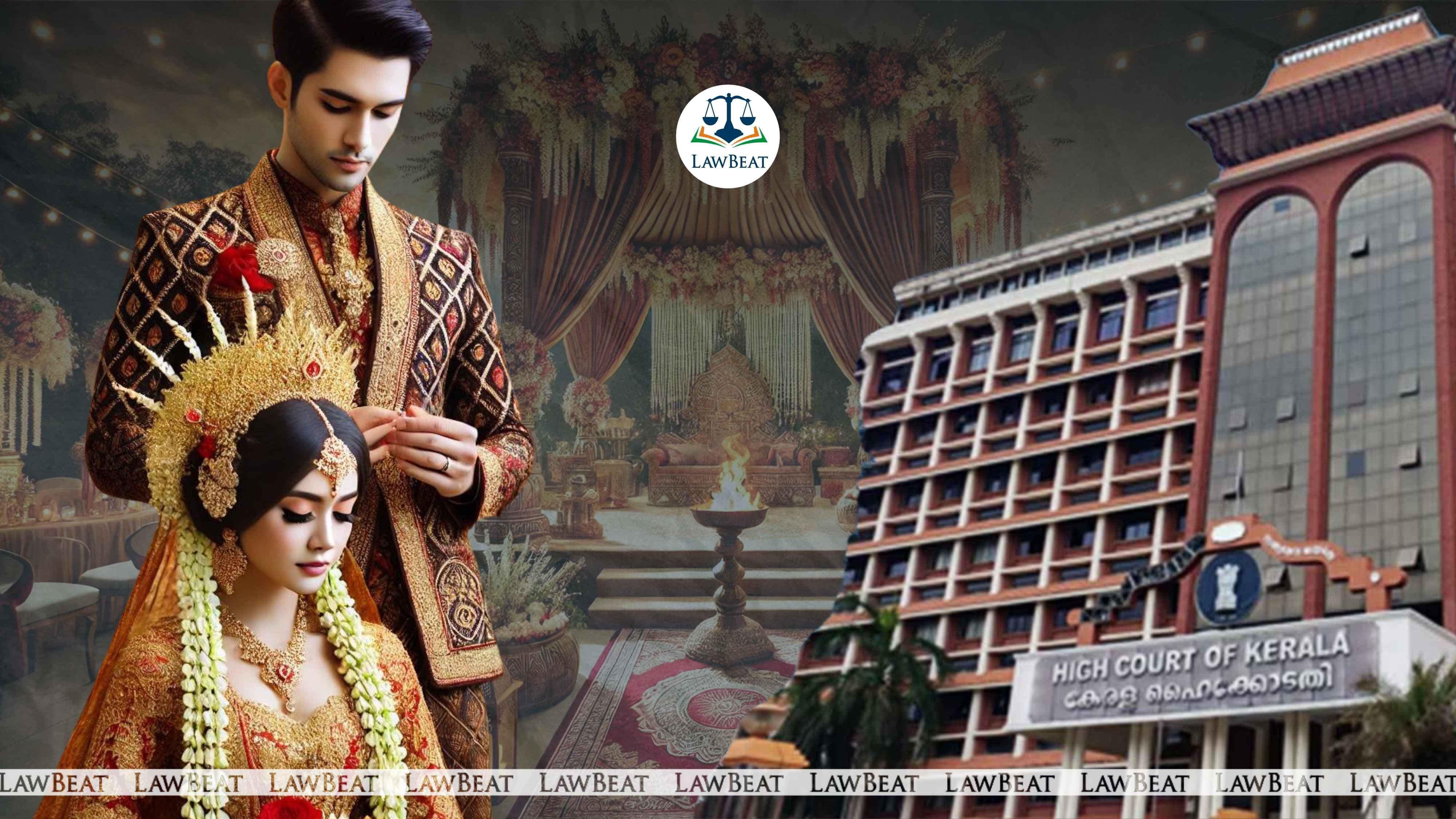Indian Citizens Marrying Foreigners Governed By Foreign Marriage Act Not Special Marriage Act: Kerala HC

The court noted that since the petitioners’ marriage was solemnised in Indonesia under Indonesian civil law, it falls within the scope of the Foreign Marriage Act
The Kerala High Court has ruled that marriages where one spouse is an Indian citizen and another is a foreigner, fall under the purview of the Foreign Marriage Act, 1969 (FMA) and can only be registered as per its provisions and are not governed by the Special Marriage Act, 1954 (SMA).
The court, presided over by Justice C.S. Dias, considered the key question, “Is it permissible to register a marriage solemnized outside India between an Indian citizen and a foreign national under the Special Marriage Act?”
The court was hearing a petition filed by Vipin P.G., an Indian citizen, and Madia Suhartika, an Indonesian citizen, married on February 1, 2014, at the Religious Affairs Office, Jakarta, Indonesia. The petitioners, currently residing in Thrissur in Kerala, along with their child, sought formal recognition of their marriage in India. They submitted a joint application before the Sub-Registrar (third respondent) for registration under the SMA. However, instead of registering the marriage, the Sub-Registrar sought clarification from the District Registrar (second respondent), who did not respond. The petitioners contended that they had fulfilled all legal requirements under the SMA and that the authorities’ refusal to register their marriage violated their fundamental right under Article 21 (Right to Life and Personal Liberty) of the Constitution of India.
The Government Pleader T.C. Krishna and Deputy Solicitor General of India (DSGI) argued that the petitioners’ marriage was solemnised under Indonesian civil law and was not covered under the Special Marriage Act. It was contended that only marriages performed in India or between Indian citizens domiciled in India could be registered under the SMA. It was also submitted that the FMA, was specifically enacted to regulate marriages involving Indian citizens solemnised abroad and that the petitioners should seek registration under its provisions.
On analysing the scheme and provisions of both the Acts, the court noted that the SMA provides for marriages solemnised and/or registered in India but does not cover marriages conducted abroad where one party is a foreign national. On the other hand, the Foreign Marriage Act, applies to marriages involving at least one Indian citizen, conducted outside India, and provides for registration through an Indian Marriage Officer.
“On a comparison of the provisions of the Special Marriage Act and the Foreign Marriage Act, it is apparent that a marriage between parties, of whom at least one is a citizen of India, can be solemnised and/or registered or certified before a Marriage Officer in a foreign country under the provisions of the Foreign Marriage Act and a marriage between two persons can be solemnised and/or registered in India under the provisions of the Special Marriage Act,” stated the court.
Referencing the precedent established in Gracy and others v. P.A.Mathiri and others (2005), the court further explained that the FMA defines a “foreign country” as any place outside India and provides mechanisms for registering marriages conducted under foreign laws. “The Foreign Marriage Act generally covers the marriages performed abroad where one of the parties alone is an Indian citizen,” the court noted.
The court, thus, held that “there is no doubt that the petitioners are precluded from getting their marriage registered under the provisions of the Special Marriage Act. Hence, the stand of the 3rd respondent in refusing to register the petitioner’s marriage is justifiable.”
Relying on the guidelines set forth in Arun R.K. v. State of Kerala (2023), the court pointed out that the petitioners could register their marriage under the Foreign Marriage Act online, without needing to travel to Indonesia.
With these observations, the court disposed of the writ petition, directing the petitioners to register their marriage under the Foreign Marriage Act.
Cause Title: Vipin P G v. State of Kerala [WP(C) No. 36871 of 2024]
Appearance: Counsel for Petitioners: Advocates P. Jinish Paul, Aswini S., Sneha V.; Counsel for Respondents: DSGI T.C. Krishna, Government Pleader Vidhya Kuriakose, Advocate Thomas C. Abraham (Amicus Curiae)
